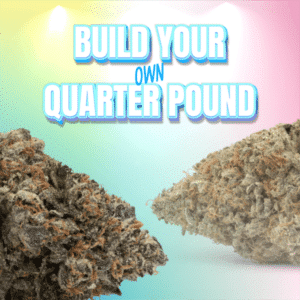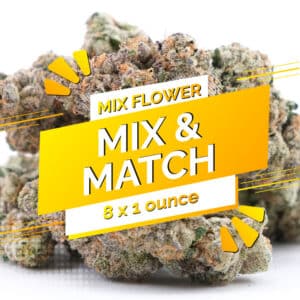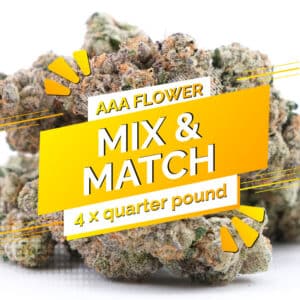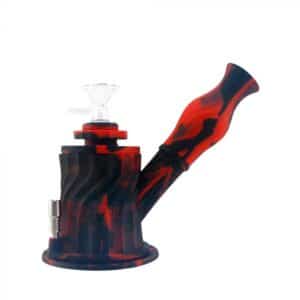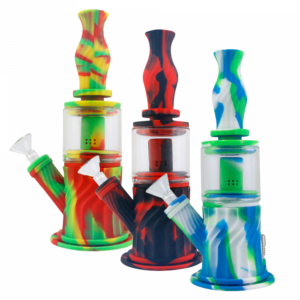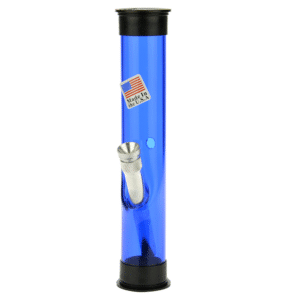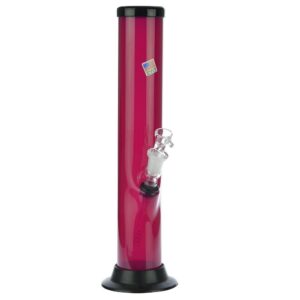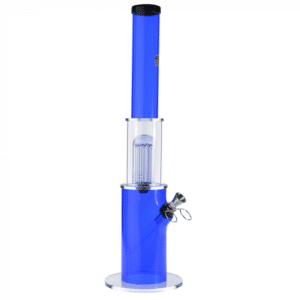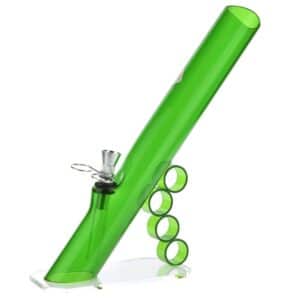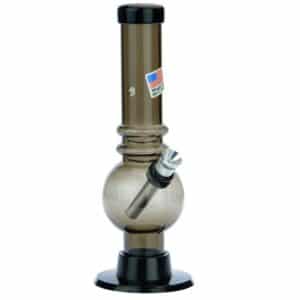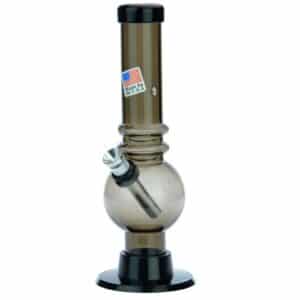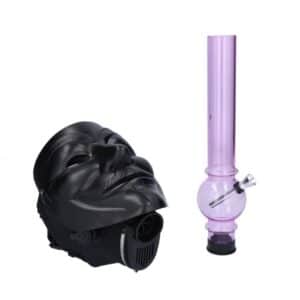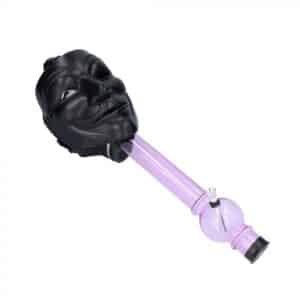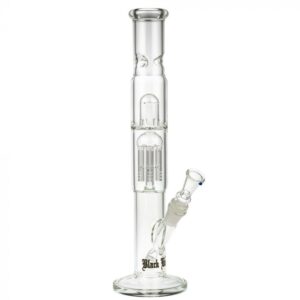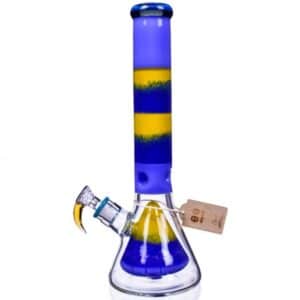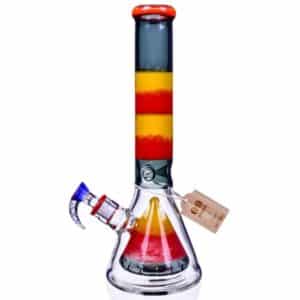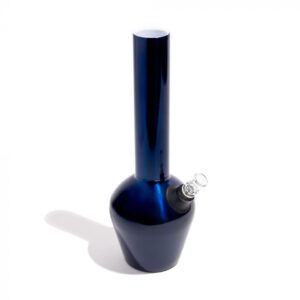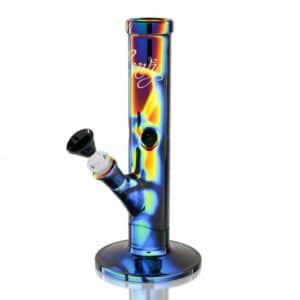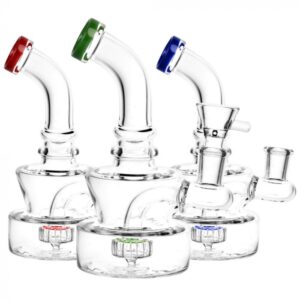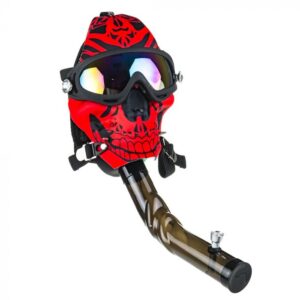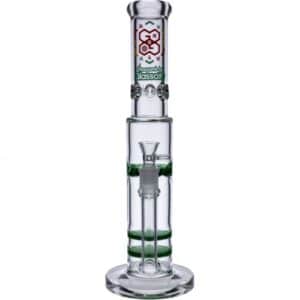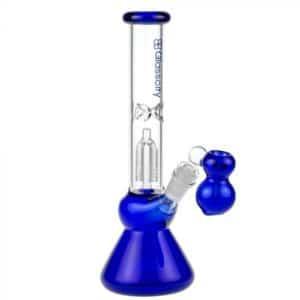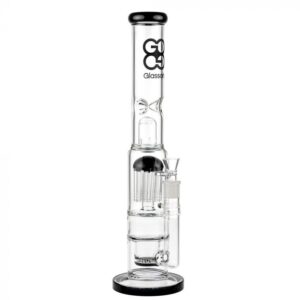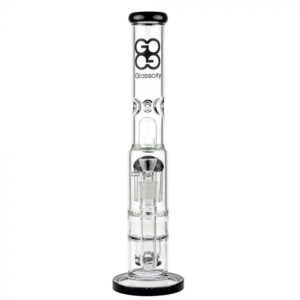Product
Categories
FILTER BY PRICE
-
Sale!0 out of 5
QP of Weed
0 out of 5$600.00Original price was: $600.00.$500.00Current price is: $500.00. Select options -
Sale!0 out of 5
Half Pound of Weed
0 out of 5$900.00Original price was: $900.00.$800.00Current price is: $800.00. Select options -
Sale!0 out of 5
Pound of Weed
0 out of 5$1,500.00Original price was: $1,500.00.$1,300.00Current price is: $1,300.00. Select options
Bongs and Water Pipe
Water pipes, commonly known as bongs, are a popular way to smoke cannabis, tobacco, or other herbal substances. Bongs use water to filter and cool the smoke, creating a smooth hit that is easier on the lungs than other smoking methods.
Showing 1–30 of 57 results
-
3-in-1 Silicone Multifunction Bong
0 out of 5$39.95Original price was: $39.95.$35.96Current price is: $35.96. -
Sale!0 out of 5
4-in-1 Silicone Multifunction Bong
0 out of 5$59.95Original price was: $59.95.$53.96Current price is: $53.96. -
Acrylic Bong with Carb Hole and Straight Tube
0 out of 5$12.99Original price was: $12.99.$11.69Current price is: $11.69. -
Acrylic Bong with Glass Downstem and Herb Bowl | 14.5 mm
0 out of 5$29.99Original price was: $29.99.$26.99Current price is: $26.99. -
Acrylic Bong with Glass Tree Perc and Metal Bowl
0 out of 5$49.99Original price was: $49.99.$44.69Current price is: $44.69. -
Acrylic Mini Grip Bong with Flat Base and Finger Grips
0 out of 5$59.99Original price was: $59.99.$41.99Current price is: $41.99. -
Acrylic Straight Bubble Base Mini Bong with Marias
0 out of 5$15.99Original price was: $15.99.$14.39Current price is: $14.39. -
Anonymous Gas Mask Bong with Acrylic Bubble Tube | Black
0 out of 5$44.99Original price was: $44.99.$40.49Current price is: $40.49. -
Bamboo Design Bong with Glass Bowl Downstem | 13 Inch
0 out of 5$49.99Original price was: $49.99.$44.99Current price is: $44.99. -
Beaker Base Ice Bong with Drum Perc | 15.7 Inch
0 out of 5$144.99Original price was: $144.99.$84.99Current price is: $84.99. -
Black Leaf Beaker Ice Bong with Drum Percolator
0 out of 5$249.99Original price was: $249.99.$124.99Current price is: $124.99. -
Black Leaf ELITE Cylinder 6-arm Perc Ice Bong | No Carb Hole
0 out of 5$130.99Original price was: $130.99.$85.99Current price is: $85.99. -
Sale!0 out of 5
Bongs USA Skeletons Silicone Bong
0 out of 5$39.99Original price was: $39.99.$35.99Current price is: $35.99. -
BRNT Designs Ceramic Hexagon Bong
0 out of 5$99.99Original price was: $99.99.$89.99Current price is: $89.99. -
Cheech Glass Color Frit Beaker Ice Bong with Pyramid Perc
0 out of 5$190.00Original price was: $190.00.$171.00Current price is: $171.00. -
Cheech Glass Double Glycerin Banger Hanger Bong
0 out of 5$140.00Original price was: $140.00.$126.00Current price is: $126.00. -
Sale!0 out of 5
Cheech Glass Kraken Perc Ice Bong
0 out of 5$220.00Original price was: $220.00.$198.00Current price is: $198.00. -
Chill Steel Pipes Mix & Match Series Water Pipe
0 out of 5$139.95Original price was: $139.95.$125.96Current price is: $125.96. -
Cookies x Stündenglass Gravity Hookah Glass Bong Set
0 out of 5$599.99Original price was: $599.99.$539.99Current price is: $539.99. -
Sale!0 out of 5
Empire Glassworks Beaker Ice Bong | Save the Bees
0 out of 5$420.00Original price was: $420.00.$378.00Current price is: $378.00. -
Envy Glass Dichroic Straight Tube Bong
0 out of 5$299.99Original price was: $299.99.$269.99Current price is: $269.99. -
Fat Bottom Mini Bong
0 out of 5$42.99Original price was: $42.99.$38.69Current price is: $38.69. -
Flux Plasma Hookah XL
0 out of 5$499.00Original price was: $499.00.$449.10Current price is: $449.10. -
Freeze Pipe Bong XL
0 out of 5$209.95Original price was: $209.95.$188.96Current price is: $188.96. -
Freeze Pipe Bong XL
0 out of 5$209.95Original price was: $209.95.$188.95Current price is: $188.95. -
Gas Mask Goggle Bong with Bent Tube
0 out of 5$39.99Original price was: $39.99.$27.99Current price is: $27.99. -
Glass Ice Bong with Double Honeycomb Disc Perc | 16 Inch
0 out of 5$135.99Original price was: $135.99.$75.99Current price is: $75.99. -
Glasscity 4-arm Perc Beaker Ice Bong with Ash Catcher
0 out of 5$65.99Original price was: $65.99.$43.99Current price is: $43.99. -
Glasscity Limited Edition Glass Beaker Ice Bong | Black | Small
0 out of 5$64.99Original price was: $64.99.$41.99Current price is: $41.99. -
Glasscity Straight Ice Bong with Tree Perc and HoneyComb Perc
0 out of 5$127.99Original price was: $127.99.$77.99Current price is: $77.99.
Bongs and Water Pipes: A Comprehensive Guide
This complete guide on bongs covers everything you need to know, from the benefits of water filtration to the different types and parts that make up a bong. You’ll also learn proper bong techniques, cleaning and maintenance tips, and safety considerations for an optimal smoking experience.
Key Takeaways of Bongs and Water Pipes
- Bongs utilize water filtration to produce smooth, cooled smoke for a comfortable smoking experience.
- Various percolator and tube styles impact diffusion, airflow, and drag resistance when smoking from a bong.
- Proper packing, carb control, and clearing techniques maximize efficiency when hitting a bong.
- Regular cleaning with isopropyl alcohol keeps bongs free of residue for optimum performance.
- Avoid toxic materials like plastic and fragrances when selecting a new bong for safety.
How Do Bongs Work?
Bongs provide water filtration and diffusion through the following process:
- Combustion of the smoking material produces hot smoke containing desired compounds as well as tar and ash.
- Traveling through the downstem submerged in water cools and filters the smoke.
- Bubbles percolating through water further diffuses the smoke.
- Smoother, filtered smoke travels through the tube into the chamber for inhalation.
- Water also collects resin and debris that can alter flavor and block airflow when smoking.
This water filtration delivers a smoother hit less irritating to the lungs compared to smoking unfiltered combustion products from pipes or joints. The cooling effect also enables taking bigger hits while retaining smoothness.
The Benefits of Smoking from Bongs
There are several key benefits that make bongs a popular choice among smokers:
Smoother Hits – Water filtration eliminates particulate matter and cools smoke for a smooth, comfortable inhalation.
Flavor Preservation – By filtering ash and debris, the nuanced taste of quality smoking material comes through optimally.
Higher THC Transfer – Cooler smoke allows users to inhale deeper while reducing irritation to maximize absorption of desired compounds.
Greater Efficiency – Minimal sidestream smoke and optimal diffusion of smoke into the lungs makes bong smoking efficient. Less material is wasted per hit.
Customization – A wide variety of materials, percolator styles, and add-ons allow bong personalization for any user’s preferences.
The cleaner, cooler, and smoother experience water pipe smoking offers makes it a desirable consumption method for many users.
Types of Bongs and Water Pipes
There are several varieties of bongs available that provide unique functionality through their designs:
Straight Tube Bongs
The simplest design, straight tube bongs feature a vertical tube topped with a bowl or slide. Smoke percolates through the downstem into the water before traveling up the tube.
Benefits
- Simple, inexpensive design
- Easy to clean
- Provides basic water filtration
Drawbacks
- Minimal percolation
- Harsher hits than more complex bongs
Beaker Bongs
Beaker bongs have a wide, triangular base tapering into a narrow tube for increased stability and water volume. The wide base enables smoother, cooler hits.
Benefits
- Increased smoke diffusion
- Greater stability
- Allows bigger hits
Drawbacks
- Heavier and more cumbersome
- Higher drag while inhaling
Round Base Bongs
Round base bongs feature globular water chambers tapering into the tube. The compact shape adds portability while retaining stability.
Benefits
- Very stable
- Portable compared to beaker bongs
- Artistic appeal
Drawbacks
- Smaller water capacity
- Less diffusion than beaker bongs
Percolator Bongs
Percolator bongs contain accessories called percs that diffuse smoke through small openings or slits into the water prior to inhalation. Popular percs include tree, inline, honeycomb, and multi-arm designs.
Benefits
- Super smooth hits from maximum percolation
- Greater filtration of particulates
- Customizable diffusion and draw resistance
Drawbacks
- More expensive and complex
- Harder to clean thoroughly
Multi-Chamber Bongs
Multi-chamber bongs feature two or more tubes or chambers that smoke must travel through before inhalation. Extra chambers provide additional water filtration and cooling.
Benefits
- Ultra smooth hits from maximum water contact
- Greater diffusion and cooling
- Enable bigger inhalations
Drawbacks
- Harder to clean
- Increased drag and resistance while inhaling
Bong Anatomy: Parts and Components
Though designs vary, bongs share common components that enable their functionality:
Tube/Chamber – The main shaft that fills with smoke before cleared for inhalation. Material affects durability and aesthetics.
Base – Shaped base filled with water that holds the bong upright. Affects stability and water capacity.
Downstem – The tube inserting into the water from the bowl/joint to diffuse smoke. Length and diameter impact percolation.
Bowl/Joint – Holds smoking material for combustion/vaporization. Size ranges from .1g to over 1g capacity.
Carb – Small secondary hole to control airflow when clearing the chamber. Located on the tube or bowl.
Mouthpiece – End of the tube where users inhale from. Can be fixed or removable.
Percolator – Additional accessories that further diffuse smoke through slits into the water, enhancing the smoothness and cooling effect.
Ashcatcher – Accessory that collects ash before entering water, keeping bong cleaner.
How to Use a Bong: Tips and Techniques
Using proper techniques makes a difference in your bong smoking experience. Follow these tips:
- Grind Material – Breaking up material increases exposed surface area for thorough combustion and full flavor.
- Use Screens – Screens prevent pull-through of material into the water while optimizing airflow.
- Fill Chamber – Add enough water so the downstem is fully submerged but avoiding backsplash when clearing the chamber.
- Pack Snugly – Lightly pack ground material into the bowl without compressing tightly to allow airflow.
- Control Carb – Cover the carb completely while lighting and inhaling, then release to clear the chamber.
- Inhale Slowly – Draw your hit slowly over 5-10 seconds for optimal diffusion and cooling of the smoke before clearing the bong.
- Change Water – Replace water regularly when it becomes murky or smelly for the best results.
Proper packing, slow inhaling, carb control, and regular water changes will help you master using any bong for the ultimate smoking experience.
How to Clean a Bong
Over time, resin, ash, and debris accumulate inside bongs, negatively impacting performance. Follow this process to clean thoroughly:
Supplies Needed
- Isopropyl alcohol, ideally 90% or higher
- Table salt or abrasive cleaners
- Pipe cleaners and cotton swabs
Instructions
- Disassemble – Take apart the bong as much as possible for access to all areas.
- Pour Out Water – Drain all old water and debris from base, downstem and hoses.
- Rinse – Warm water rinse to remove loose particles. Avoid soap due to lingering taste.
- Apply Alcohol and Salt – Pour into base and shake vigorously. Salt acts as an abrasive scrubber.
- Scrub – Use cotton swabs and pipe cleaners dipped in alcohol to scrub inside tubes, downstem, and other narrow areas.
- Rinse Again – Run warm water through all areas to rinse away dissolved resin.
- Air Dry – Disassemble and leave parts to fully dry before reattaching and using.
Regular deep cleanings optimize performance and also kill any mold, bacteria, or other pathogens that may accumulate.
Bong Safety Tips
When shopping for and using a bong, keep these safety considerations in mind:
- Carefully inspect new bongs for defects like thin, cracked glass before use.
- Avoid plastic bongs or toxic materials like paint or artificial fragrances.
- Ensure stability and keep away from edges to prevent damage from falls and spills.
- If smoking combustibles, use a screen in the bowl to prevent inhalation of ash and debris.
- Change water frequently to avoid bacteria growth. Clean thoroughly on a bi-weekly schedule minimum.
- Never leave ethanol or isopropyl alcohol inside a bong after cleaning. Rinse thoroughly.
- When lighting bowls, keep away from flammable materials and provide proper ventilation.
By selecting high-quality bongs made from non-toxic materials and practicing safe usage and cleaning routines, you can ensure an enjoyable and hazard-free smoking experience.
Bongs vs. Water Pipes vs. Rigs: Key Differences
Though often used interchangeably, some nuances differentiate bongs, water pipes, and dab rigs:
Bongs
- Designed for smoking dried botanical material (weed, tobacco)
- Use a bowl packed with material
- Submerge downstem into water for filtration
- Carb or shotgun capabilities
Water Pipes
- More general term encompassing various water filtration smoking devices
- Includes bongs and bubblers among other pipe styles
- Typically used for cannabis smoking
Dab Rigs
- Specifically designed for vaporizing cannabis concentrates and extracts
- Feature a male joint instead of bowl
- Contain a nail, dish, or banger to vaporize extracts
- Often smaller with minimal water filtration
While bongs and water pipes overlap significantly, dab rigs optimize the precise vaporization of waxes, shatters, and oils using specialized accessories and fittings.
Acrylic vs. Glass: Pros and Cons
Bongs come in two primary materials: glass and acrylic plastic. Each has advantages and disadvantages:
Acrylic Bongs
Pros
- Inexpensive
- Durable – resists breaking
- Lightweight and portable
- Can incorporate more color
- Smoother draw resistance
Cons
- Retains odors over time
- Can melt and inhale toxic fumes if used for combustion
- Lower build quality typically
- Less aesthetic appeal
Glass Bongs
Pros
- Pure flavor from inert material
- Allows visual inspection of cleanliness
- Highly customizable aesthetics
- Durable with proper handling
- Premium feel and cache
Cons
- Easily broken if dropped or knocked over
- Heavier and less portable typically
- More expensive
- Higher drag while inhaling
For a balance of affordability, durability, and performance, mid-range borosilicate glass provides an ideal combination of glass and acrylic’s strengths.
Bubbler Bongs vs. Full-Size: How Do They Compare?
Bubbler bongs are a smaller, more portable variety of water pipe, but how do they stack up against standard full-size bongs?
Size
- Bubblers – Compact size ranging from 3”- 6” inches tall. Easily portable.
- Full-Size – Typically 1-2 feet in height. Not portable.
Water Filtration
- Bubblers – Minimal water and percolation. Designed for portability over cooling and smoothness.
- Full-size – Greater water capacity and diffusion for maximally cooled smoke.
Hit Size
- Bubblers – Smaller chamber and mouthpiece produce smaller hits.
- Full-size – Large tubes allow bigger rip capacity.
Maintenance
- Bubblers – Quick and easy to clean.
- Full-size – More time consuming to clean thoroughly.
Bubbler bongs suit portability while full-size bongs provide ultimate diffusion and hit size, though cleaning takes longer. Choose based on your priorities.
Best Bong Brands
With so many bong brands available, it helps to know the most reputable and highest-quality options:
RooR
German crafted borosilicate glass bongs made with exceptional precision and quality control. High-end yet durable products.
Illadelph
Philadelphia-based company renowned for innovative bong designs with pristine welds and percolators.
HiSi
Offer uniquely styled hand-blown glass bongs with super smooth hits.
Zob Glass
Zob focuses on elegant, elaborately designed artistic glass bongs.
ThickAssGlass
Feature virtually unbreakable borosilicate tubes up to 12mm thick for extreme durability.
When investing in a premium bong, these top brands provide flawlessly functional smoking products built to last.
Frequently Asked Questions about Bongs and Water Pipes
What is the best bong size?
Most users recommend a height of 12” – 18” for the ideal balance of size and function. Taller bongs over 2 feet can deliver massive hits but are unwieldy, while smaller models compromise airflow.
Do bongs get you higher than pipes or joints?
Yes, bongs can get you higher since the water filtration creates a smoother hit that enables inhaling more smoke deeply into the lungs where THC absorption occurs.
Is glass or acrylic better for bongs?
Both have pros and cons, but glass is considered higher quality for its purity of flavor and customization while being durable if handled carefully. Mid-grade borosilicate is recommended.
How often should you change bong water?
Ideally change water every 2-3 smoking sessions. Water should be changed at least once a week, or whenever it gets murky or smelly.
What is the best way to clean a bong?
The most effective cleaning method is to regularly wash the disassembled parts with 90% isopropyl alcohol and coarse salt as an abrasive. Always rinse thoroughly after cleaning.
Can you smoke weed out of a tobacco water pipe?
Yes, tobacco water pipes or hookahs can be used for smoking cannabis. However, tobacco residue may alter the flavor if not thoroughly cleaned beforehand.
Why do bongs make you cough?
Overfilling the chamber with smoke and attempting to inhale too large of a hit can irritate the throat and lungs, causing coughing. Slow, steady inhalation prevents coughing.
Is smoking from a bong worse for your lungs?
No, bongs are likely less harsh on the lungs since the water filtration cools and smoothes the smoke. However, any smoke inhalation can irritate lungs.
Can you use a bong for dabs?
You can, but dab rigs are specially designed for vaporizing concentrates at high temperatures on a nail or in a bucket. Bongs are better suited for combusting dried botanical material.
What does a percolator on a bong do?
Percolators diffuse smoke into tiny bubbles to filter and cool before inhalation. More percs provide smoother hits. Common styles are tree, honeycomb, inline, and matrix percs.
User Experiences with Bongs and Water Pipes
Curious what actual users have to say about their experiences with bongs? Here’s candid feedback:
“I’ll never go back to smoking without a bong. Huge smooth rips that get you lifted with way less coughing compared to pipes or joints.”
“It took me a few bowls to get the right water level and packing technique, but once I got it down hits were insanely smooth.”
“The thing I like most about smoking from my new bong is the flavor. I can really taste all the nuanced notes in my bud.”
“Cleaning is kind of a chore, but I like keeping my glass shiny and new. It makes for an awesome smoking experience.”
“I prefer a simple, straight tube bong. It delivers great cooling and filtration without any fancy extras to clean and maintain.”
“Smoking from a quality glass bong is very meditative. I like watching the smoke swirl and bubbles percolate when taking a nice, slow rip.”
“Huge lung busting hits you can take with a big beaker bong. I don’t mind the higher drag – totally worth it!”
“My bubbler bong is so portable and convenient. The smaller size means slightly less cooling but still smoother than smoking unfiltered.”
In general, users agree that bongs deliver a smoother, cleaner, and more flavorful smoking experience in addition to being visually appealing. Maintenance is a small price to pay for the benefits water filtration provides.
Conclusion
In summary, bongs remain a popular smoking choice thanks to their smooth hits, pure flavor, customization options, and visual appeal. With the right bong and technique, users can achieve new heights!
